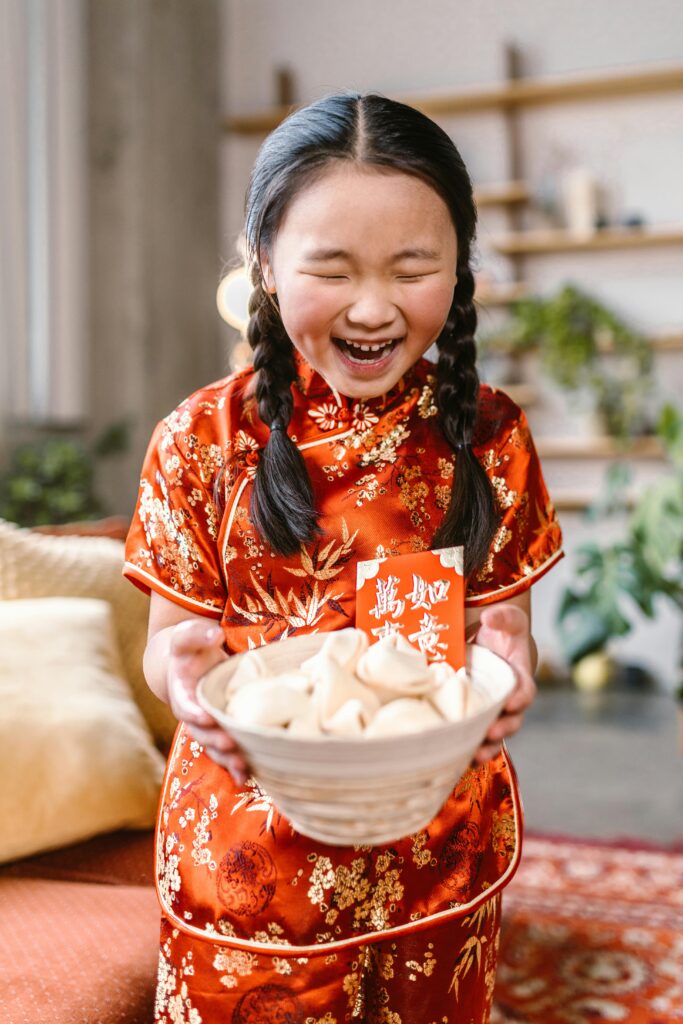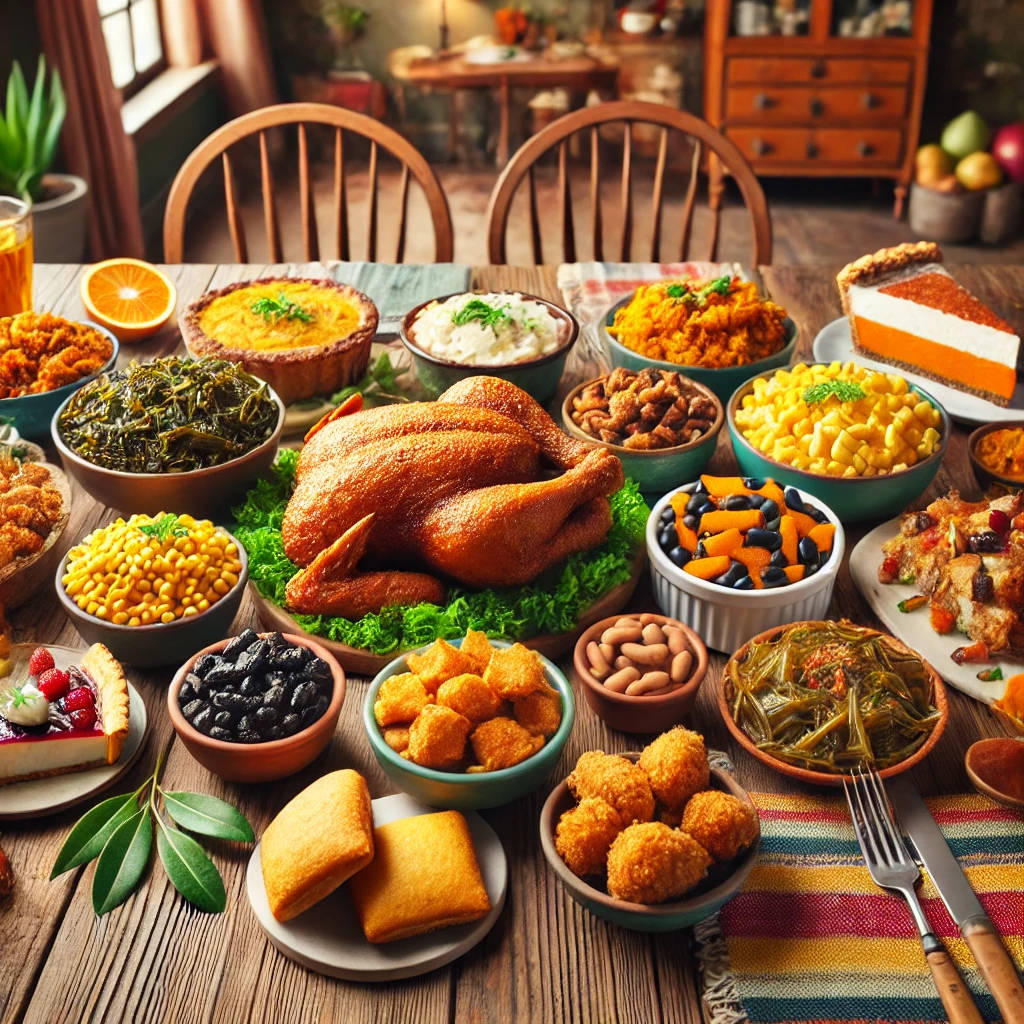The Cultural and Social
Aspects of Food
Cultural Celebrations throughout the World!
The variety of cultures in every country throughout the world celebrate cherished rituals and food plays a meaningful role in all of them!

Carnaval in Brazil: A Celebration of Flavor and Freedom
As February erupts with the vibrant energy of Brazilian Carnaval, the nation’s streets fill with music, dance, and an array of distinctive foods that fuel the world’s biggest party while telling stories of Brazil’s rich cultural heritage.
The History of Carnaval Cuisine
Carnaval’s culinary traditions reflect Brazil’s diverse cultural influences – Indigenous, African, and European – creating a unique fusion that mirrors the celebration’s inclusive spirit. Originally a Catholic festivity marking the beginning of Lent, Carnaval became an expression of cultural resistance and celebration, particularly through food.
Street Food Culture During Carnaval
The streets of Salvador, Rio de Janeiro, and Recife come alive with vendors selling traditional Carnaval foods. Acarajé, crispy black-eyed pea fritters filled with vatapá (spicy shrimp paste), represents the strong African influence in Brazilian cuisine, particularly in Salvador’s celebrations.
Regional Specialties and Traditions
Each region of Brazil celebrates Carnaval with its own culinary traditions. In Recife, street vendors offer tapioca pancakes filled with coconut and condensed milk. Rio’s celebrations feature pastéis (fried pastries) and brigadeiros (chocolate truffles), while Bahia’s streets overflow with moquecas (fish stews) and cocada (coconut sweets).
Modern Interpretations
Contemporary Carnaval celebrations have evolved to include health-conscious options and creative fusion dishes. Young chefs reimagine traditional street foods with global influences, while maintaining the spirit of celebration and community that defines Carnaval.
The Future of Carnaval Cuisine
As Brazil’s food scene gains global recognition, Carnaval cuisine increasingly serves as a gateway to understanding Brazilian culture. Social media and food tourism have sparked international interest in these traditional celebrations and their associated foods.

Lunar New Year: A Feast of Meaning and Fortune
As February welcomes the Lunar New Year in 2025, millions across Asia and around the world prepare elaborate feasts where each dish carries symbolic significance for prosperity, longevity, and good fortune in the year ahead.
The Symbolism of Lunar New Year Foods
In Chinese tradition, the New Year’s Eve reunion dinner (年夜饭, niányèfàn) represents the most important meal of the year. Each dish serves as a blessing, carefully chosen for its symbolic meaning, often based on appearance or linguistic connections to positive qualities.
Essential Dishes and Their Meanings
Dumplings (饺子, jiǎozi), shaped like ancient Chinese gold ingots, represent wealth and prosperity. Fish (鱼, yú) is essential because its pronunciation matches the word for “surplus.” Long noodles symbolize longevity, while spring rolls, golden and cylindrical, represent bars of gold and incoming wealth.
Regional Variations and Modern Adaptations
While Chinese traditions might be the most widely known, Lunar New Year celebrations vary significantly across Asia. Vietnamese Tết features bánh chưng, square sticky rice cakes wrapped in dong leaves. Korean Seollal centers around tteokguk, a rice cake soup that marks the passing of another year.
The Evolution of Tradition
Modern celebrations increasingly blend traditional elements with contemporary innovations. Young professionals in urban centers might order premium hot pot deliveries for their reunion dinners, while overseas Chinese communities create fusion dishes that honor both their heritage and local ingredients.
A Global Celebration
As Asian diaspora communities grow worldwide, Lunar New Year foods have found new audiences and interpretations. High-end restaurants offer modern takes on traditional dishes, while home cooks share family recipes on social media, creating cross-cultural dialogue and understanding.

Soul Food: The Living Legacy of Black American Culinary Innovation
The story of Black American cuisine is one of resilience, creativity, and cultural preservation that continues to influence global food culture. During Black History Month, we explore how this culinary tradition has shaped American cooking while carrying forward a legacy of community, innovation, and resistance.
From Necessity to Culinary Art
African American foodways emerged from a complex history of survival and adaptation. Enslaved people transformed meager provisions and indigenous ingredients into nourishing, flavorful dishes that would become cornerstones of American cuisine. This culinary alchemy gave birth to techniques and flavor combinations that define soul food today.
The Evolution of Soul Food
While the term “soul food” gained prominence during the 1960s Civil Rights Movement, these cooking traditions trace back centuries. Dishes like collard greens, black-eyed peas, cornbread, and okra tell stories of African heritage, agricultural knowledge, and communal resistance. The African practice of “making do” – utilizing every part of an ingredient – became a hallmark of soul food cooking, reflecting both necessity and resourcefulness.
Beyond the Stereotypes
Modern Black chefs and food historians work to challenge oversimplified narratives about soul food. Far from being merely “poverty cuisine” or “comfort food,” Black American cooking represents a sophisticated culinary tradition that has consistently adapted to changing circumstances while maintaining its cultural core.
Innovation and Influence
Contemporary Black chefs continue to innovate while honoring traditional techniques. From fine dining establishments to food trucks, they’re reimagining classics with global influences and modern techniques. Plant-based soul food, farm-to-table interpretations, and health-conscious adaptations demonstrate the cuisine’s ongoing evolution.
Preservation Through Documentation
A new generation of Black food writers, historians, and digital creators works to document and preserve these culinary traditions. Social media platforms and food blogs have become vital spaces for sharing family recipes, discussing food history, and connecting across generations.
Looking Forward
As conversations about food justice, cultural appropriation, and representation in the culinary world continue, Black American cuisine stands as a testament to the power of food as a vehicle for cultural preservation and social change. Modern interpretations of soul food demonstrate how traditional recipes can adapt to contemporary tastes and dietary needs while maintaining their cultural significance.

Explore the World of Food and Wellness
At Culture of Flavors, we believe that food is more than sustenance—it’s a gateway to understanding cultures, celebrating traditions, and nurturing both body and soul. Our mission is to guide curious minds through the intricate tapestry of global food culture, exploring the stories behind cherished recipes, cultural celebrations, and the evolving landscape of food politics and sustainability.
We empower our readers to forge meaningful connections with their food choices by delving into the intersection of culinary traditions and modern wellness. Through thoughtfully curated content and carefully selected product recommendations, we illuminate the path to a balanced, healthy relationship with food that honors both cultural heritage and personal well-being. From investigating innovative cooking techniques and sustainable growing practices to uncovering the cultural significance of traditional festivities, we inspire our community to approach food with mindfulness, curiosity, and joy.
Culture of Flavors serves as your trusted companion in cultivating a deeper understanding of how food shapes our lives, communities, and the world around us. Through our Top Choices recommendations, we connect readers with premium tools, ingredients, and travel experiences that enhance their culinary journey and cultural exploration. We partner with brands and services that align with our values, ensuring every recommendation supports our mission of authentic cultural connection and wholesome living. We’re dedicated to fostering an inclusive space where food enthusiasts can discover, learn, and grow—embracing the transformative power of cultural cuisine while building sustainable, wholesome relationships with food that nourish both body and spirit.





